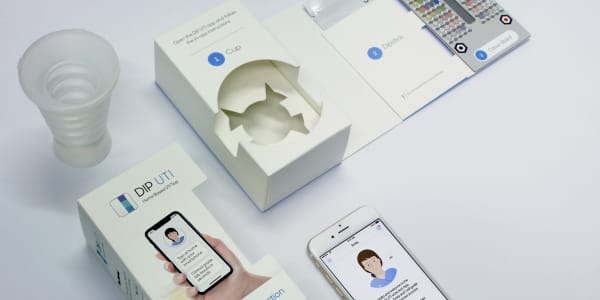Vitamins and supplements. Fitness apps. Home health care services for the elderly. Concierge medical groups.
These products and services might not appear to have very much in common, but they all sit on the peripheries or edges of the traditional health care system.
And Silicon Valley's entrepreneurs and venture firms can't get enough of them.
Founders often talk about about how challenging it can be to break into the multi-trillion dollar medical sector. Health care startups face regulatory hurdles, long sales cycles and a high burden of proof — and that means it can take more than a decade to make a return.
As a result, many venture-backed entrepreneurs are looking instead at opportunities on the fringes of the health care system, such as cash-only health services that don't require insurance or tests and apps that aren't regulated by the U.S. Food and Drug Administration.
For tech investors, these opportunities hold the chance of an outsized return in five years or less. That often valuations on par with consumer Internet start-ups.
"Less regulation means faster time to market, more flexible marketing options, and a broader customer base," said Jon Sakoda, general partner at New Enterprise Associates.
Sakoda's firm has made several bets in the non or less-regulated health sector including Ritual, maker of vitamins by subscription, and Pager, an app for people to schedule a doctor's visit to their home. (NEA also invests in more traditional health start-ups through its biopharma fund).
'No one uses the health system in the same way'
Remaining outside of the health system is a compelling strategy, but Silicon Valley's entrepreneurs are missing out on opportunities to serve the people who need innovative health solutions the most. Low-income and chronically ill populations have the highest health care costs, but most of what Silicon Valley is working on today won't help them.
Many entrepreneurs acknowledge this, but justify their approach by promising to focus on more at-risk groups once they've nailed the product. Or to reduce the price of their service over time, so that it's more affordable.
One example of that is Forward, a high-tech doctor's office in San Francisco that charges $149 a month and doesn't take insurance. Adrian Aoun, the company's founder and a Google veteran, has stressed in media interviews that the price will eventually come down, echoing Elon Musk's sentiments about the high-priced Tesla.
But some health experts are skeptical. "I don't know if this (rationale) works in health care," explained Jordan Michaels, operations director at GoodRx, a company that offers discount coupons on prescription drugs.
Michaels wonders whether a company that starts off in an unregulated space will double back at some later point and re-assess. And at that point, he wondered, will the company's founders be able to connect with the needs of a totally different population? And will the investors understand that it takes longer to convince payers, whether it's hospitals or insurance companies, to pick up the tab?
"It's not like a car where if you drive, you drive," said Michaels. "No one uses the health system in the same way."
A cautionary tale is HomeHero, one of a dozen or so venture-backed start-ups that served as an online marketplace for caregivers. After some regulatory changes that upended the home care industry, HomeHero pivoted to partner with hospitals rather than outside of them -- and that required hiring experts and getting educated about the inner workings of health systems.
It proved to be too little, too late. A promising pilot program with a large hospital doesn't always convert into a paid contract, the company learned. It takes time, hence why companies inside the health sector need to educate their investors about the challenges. After realizing that it would be far more of an uphill battle than expected, it pivoted out of home care altogether.
To reiterate the words of President Trump, "Nobody knew that health care could be so complicated."





